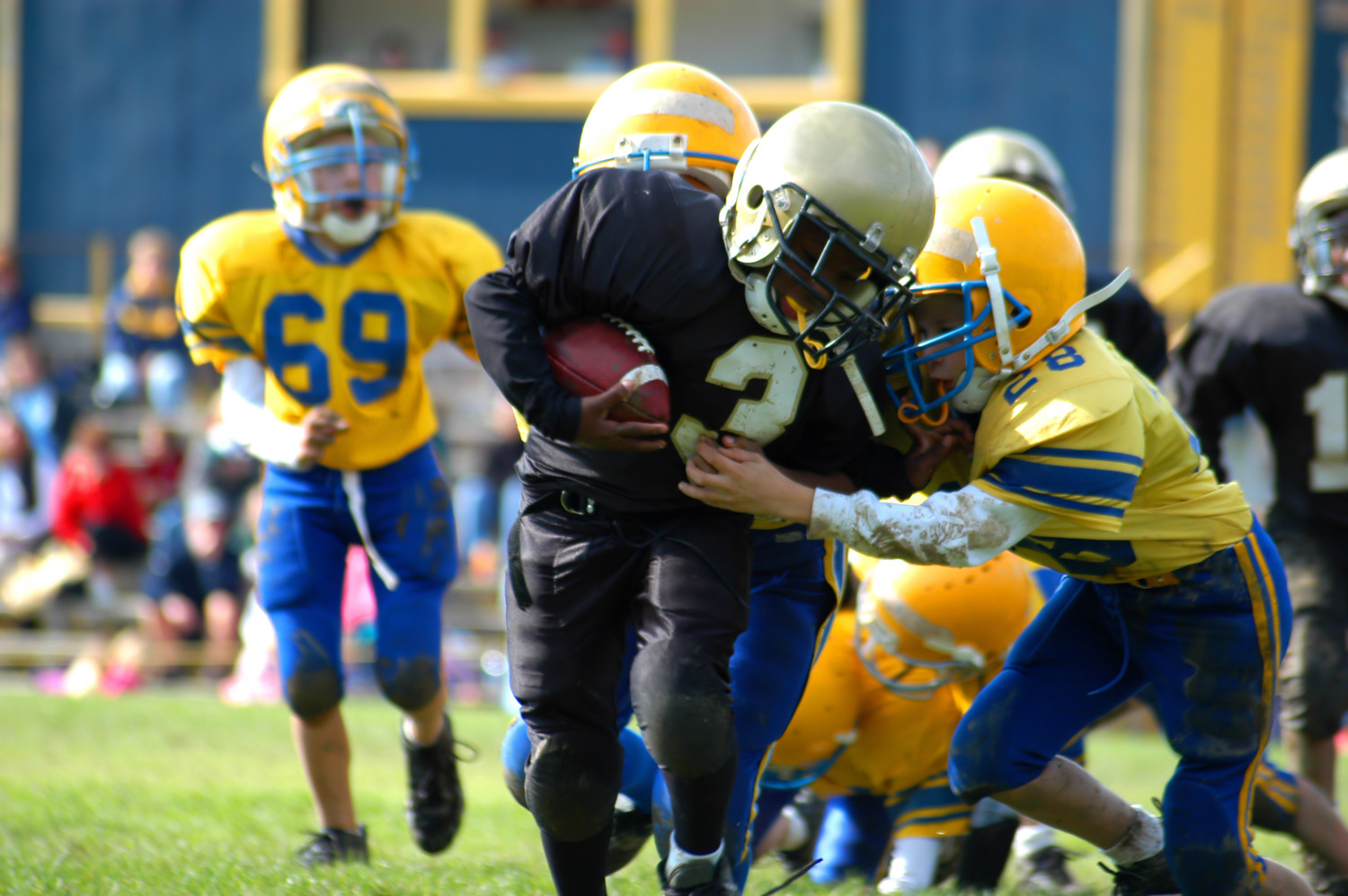Former NFL quarterback and Hall of Famer Brett Favre spent 20 seasons playing the sport he loves. During that time, he faced huge defensive lines and got tackled countless times. The impact of those hits lasted well beyond his active playing years, and now the legendary quarterback has a warning for parents of young children who want to play tackle football.
Favre partnered with the Concussion Legacy Foundation to appear in a public service announcement telling parents not to let their children to play tackle football until age 14. He shared the powerful video, called “A Warning from the Future,” on Twitter:
CTE is a terrible disease, and we need to do everything we can to prevent it for the next generation of football players. That starts with keeping kids out of tackle football. @ConcussionLF says choose flag until age 14. I agree. https://t.co/nwAtAeo8EE
— Brett Favre (@BrettFavre) August 17, 2021
The video features Favre as the adult version of a young football player warning his parents about the dangers of playing tackle football as a kid. As the video transitions from the child to a teenager to Favre, the player describes the effects of playing tackle football for decades and explains chronic traumatic encephalopathy, or CTE.
“I just learned about CTE,” the child says, explaining that the longer he plays, the more he’s at risk.
“So by the time I’m your age … ” the teen says just before the transition to Favre.
“I could be fighting depression, struggling to keep my thoughts straight,” Favre says, finishing his sentence. “I could become violent, even to my own children. When I’m your age, what will matter to me is not my youth football career, but that, like you, I’m a great parent and I can provide for my family.”
“So please, keep me out of tackle football, until I’m 14,” the child says.
You can watch the video here:
CTE is a degenerative disease of the brain. Studies show repetitive hits to the head — including but not limited to diagnosed concussions — are the likely cause of CTE.
Favre, 51, has previously shared his struggle with short-term memory issues and attributes them to the thousands of hits he took during his career.
“There’s a term we use in football and maybe other sports, that I got ‘dinged,'” USA Today reported in 2018. “When you have ringing of the ears, seeing stars, that is a concussion. If that’s a concussion, then I’ve had hundreds, probably thousands, throughout my career, which is frightening.”
Favre is an advocate for flag football for kids to minimize their injury risk.
“Having kids play tackle football before high school is just not worth the risk,” Favre said in a statement shared by the Concussion Legacy Foundation, The Washington Post reported. “CTE is a terrible disease, and we need to do everything we can to prevent it for the next generation of football players.”

What Medical Experts Say About Youth Tackle Football
Medical experts continue to review the impact of tackle football on children and offer guidance to parents who wonder if the risk is worth the positive influence of team sports play.
The Centers for Disease Control and Prevention (CDC) reports that studies have shown football has the highest number of sports-related concussions and other traumatic brain injuries among youth. The same study also showed that youth tackle football athletes had 15 times more head impacts during a practice or a game than flag football players, and they were 23 times more likely to experience a hard head impact during a practice or a game.

Experts also recommend that parents make sure their football player’s equipment meets appropriate safety requirements, especially helmets.
CDC’s helmet safety guidelines include getting an accurate head measurement, assessing the helmet’s head coverage, fit guides and other steps. You can download the CDC’s full helmet safety Fact sheet here.
The American Academy of Pediatrics has yet to recommend the elimination of tackle football for children. In its most recent guidance, in an article from 2015 entitled “Tackling in Youth Football,” the AAP wrote that “Further investigation into the effects of delaying the introduction of tackling until a certain age must be conducted before informed recommendations can be made.”
Instead, it outlined recommendations about officials enforcing the rules of the game, coaches teaching proper tackling techniques, having players work with physical therapists to strengthen neck muscles and having certified athletic trainers supervise all practices and games.
This story originally appeared on Simplemost. Checkout Simplemost for additional stories.


